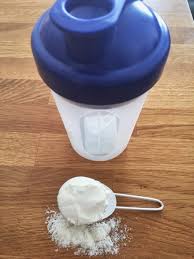Do you want to know the benefits of Whey Protein? Whey is the most used supplement among people who do sports to facilitate muscle recovery. It is one of the two proteins found in milk, along with casein. It is very effective for strength and hypertrophy goals.
However, you will also see that it is critical when it comes to losing weight. It contains the 9 essential amino acids. It is ideal to take them just after the end of the training session. This way, your body can have key elements through which you can regenerate muscle fibers and recover properly.
Also Read: Top Ten Foods to gain Muscle Mass
Benefits of whey protein or whey

There are many benefits related to the intake of whey protein. However, we attribute these related to exercise and muscle building.
Let’s look at some of the benefits of whey protein or whey:
- Weightloss.
- Muscle mass gain.
- Better post-workout recovery.
- Increase in sports performance.
- Another benefit of whey protein is that it can improve the immune system.
You can achieve both weight loss and lean mass gain by taking Whey protein supplements. Therefore, you should use Whey protein in case you do not reach your minimum desired amounts of proteins. In addition, you can use Whey protein if you can take it quickly and easily.
Muscle development
One of the important benefits of Whey protein is that it has a great impact on muscle development. Its amino acid profile is complete. This causes the recovery and reconstruction of the muscles after you perform a faster physical effort.
Whey protein contains the perfect combination of amino acids. The appropriate concentrations are useful for optimal performance in the body. Hormonal and cellular responses appear to be much greater with whey protein supplementation.
How does it act in your body?
The presence of nitrogen is what distinguishes protein from fats and hydrates. Nitrogen is necessary to compensate for what is lost through tissue degeneration after training.
On the other hand, amino acids are the foundations of protein. There are thousands of different combinations of amino acids that form different types of protein. They are also necessary to regenerate your tissues. Some of them are produced by the body while essential amino acids must be obtained from external sources.
Therefore, you need to ingest adequate levels of protein and amino acids primarily through the diet. However, you can take it through Whey protein if you do not meet the minimum requirements. With this, you will prevent a negative nitrogen balance and excessive muscle damage.
Does whey protein cause kidney or liver problems?
Whey protein does not cause kidney or liver disease in healthy people. In fact, according to several studies, people who ingested whey protein obtained these results:
- They improved plasma levels and reduced liver fat.
- Reduction of hepatic steatosis.
- Increased plasma glutathione.
- Reduction of inflammatory markers.
- Improvement of transaminases.
What is the best whey protein?
There is no perfect whey protein. The choice of one or the other will depend on the needs and requirements of each person.
The three most common types of Whey protein supplementation:
- Whey Concentrate: it is the least processed form, containing between 35 and 80% protein. Its flavor is more pleasant and it the most economical product.
- Whey isolated: it has more than 90% protein and also has the advantage that it is sold with different flavors. However, it is usually a more expensive product.
- Whey hydrolyzed: this type of protein may be suitable for those allergic to milk protein or with digestive problems. Its taste is more bitter. In addition, its absorption is faster so you can use it as a pre-workout supplement. It can also accelerate your recovery after training.
What whey protein should you choose?
As we have seen before, whey protein or whey to choose will depend on individual factors. Each person is different and as we said, a sports supplement is not mandatory. However, if you want to use it, there will be no problem as long as you respect its dose and recommendations. Therefore, your purchase will depend on:
- The price depending on the quality.
- Purity level (which has +/- carbohydrates or fats in its composition.
- Sports goal (performance or health).
Ideal whey protein post-workout intake
According to studies, an intake of 40 g of whey protein after training will lead to greater stimulation of muscle protein synthesis. With respect to 20 g of product, it is beneficial for healthy young men who train their whole body.
Whey Protein Benefits – Conclusion
People commonly use whey protein as supplementation. This works best alongside resistance exercise. In addition, it helps improve the synthesis of proteins in your muscles. At the same time, it also promotes the development of lean muscle mass. Experts recommend taking whey protein because it contains all nine essential amino acids. Moreover, it has a low content of lactose, which reduces the amount of sugar in your muscles. Thus, you get defined muscles with greater strength.







